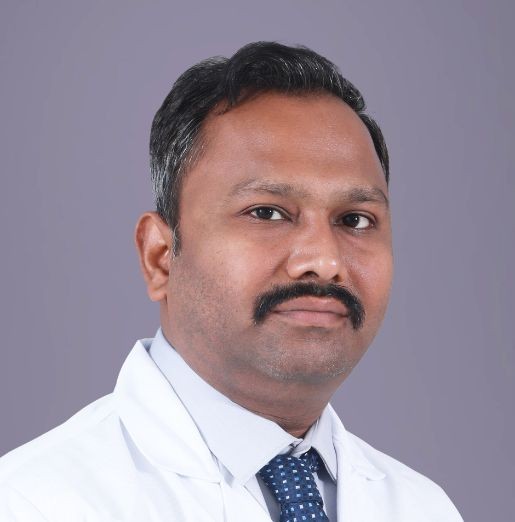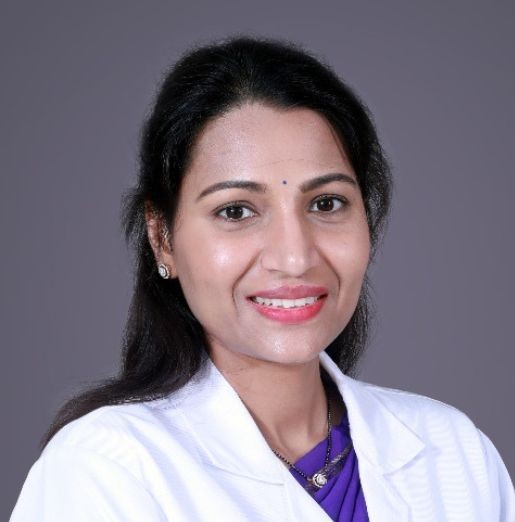The Internal Medicine Department at KIMS Hospitals in Mahadevapura brings together a wide range of skilled individuals. They share a mission to deliver top-quality care to patients and communities. They work to train and guide future doctors and researchers while advancing healthcare and wellness through groundbreaking research.
At KIMS Hospitals in Mahadevapura, the Internal Medicine team concentrates on:
- Evaluating people dealing with multiple health concerns. These include patients with tough-to-diagnose issues like trouble breathing, kidney problems, or high blood pressure who need help figuring out their condition.
- Teamwork is key, so your doctor might refer you to other specialists like surgeons or experts from the multispecialty team at KIMS Hospitals, Mahadevapura. Your internal medicine doctor creates a personal treatment strategy that works alongside the care you already get from your regular doctor.
- They focus on living healthier, spotting diseases, and stopping them from developing. This includes tests like mammograms, Pap smears, cholesterol checks, and blood pressure checks.
What is an Internal Medicine Physician?
Doctors in Internal Medicine, called internists, focus on diagnosing, treating and caring for adults in both healthy and sick conditions. Instead of concentrating on just one body part, like your heart or bones, they understand how all adult body systems work together. Their training and education specialise in preventing and managing diseases that affect adults.
If you’re dealing with a sudden illness, managing a long-term condition, or juggling multiple health concerns, your internal medicine doctor can assist you. These doctors are trained to handle a wide range of medical problems, even the tricky ones. They spend time learning about you, your medical history and any issues you may have. They also make sure you get yearly check-ups, along with the tests and vaccines needed to keep you well.
Internists help you work toward better health. They have expertise in women’s health, mental health, and care for substance abuse issues. You also won’t always need a specialist for typical problems related to your eyes, ears, skin, nervous system or reproductive health. Your internist can take care of those things as well.
Conditions and Diseases Treated in Internal Medicine Department at KIMS Hospitals in Mahadevapura
1. Disorders in Metabolism and the Endocrine System
- Diabetes Mellitus: This long-term illness happens when blood sugar levels remain too high and needs ongoing steps to control glucose levels.
- Thyroid Disorders (Hypothyroidism, Hyperthyroidism): The thyroid can either work too slowly or too quickly, which changes how the body handles metabolism.
- Hyperlipidemia: Higher levels of cholesterol or triglycerides that raise the chance of heart problems.
- Obesity: Too much fat in the body - leading to health issues tied to metabolism.
- Metabolic Syndrome: A mix of problems like extra belly fat, high cholesterol, blood pressure issues and high or low sugar levels that heightens the risk of heart disease.
- Osteoporosis: A condition making bones weaker and more likely to break.
2. Cardiovascular Diseases
- Hypertension (High Blood Pressure): This is a widespread health issue that raises the chances of heart attacks or strokes when left untreated.
- Coronary Artery Disease (CAD): In this condition, narrowed arteries in the heart limit the amount of blood flowing to the heart muscle.
- Heart Failure: This long-term problem happens when the heart struggles to pump enough blood to meet what the body needs.
- Arrhythmias: These are unusual heart rhythms that might lead to a racing heartbeat, lightheadedness or even sudden cardiac arrest.
3. Respiratory Diseases
- Asthma: This long-lasting condition triggers swelling in the airways, making them narrower. It often leads to wheezing and trouble breathing.
- Chronic Obstructive Pulmonary Disease (COPD): A long-term lung illness that blocks airflow and creates breathing difficulties.
- Pneumonia: This lung infection causes the air sacs to swell because of bacteria, viruses or fungi.
- Bronchitis: Swelling in the bronchial tubes causes coughing and extra mucus.
4. Disorders Affecting the Digestive System and Liver
- Gastritis: Swelling of the stomach lining can lead to stomach pain, nausea, or trouble digesting food.
- Peptic Ulcer Disease: Painful sores form on the inner surface of the stomach or the duodenum. These are often linked to H. pylori bacteria or the use of NSAIDs.
- Irritable Bowel Syndrome (IBS): This gut condition causes stomach pain, bloating and changes in bathroom habits.
- Liver Diseases (Fatty Liver Hepatitis): Problems that damage the liver can range from swelling to scar tissue build-up or even severe liver issues like cirrhosis.
5. Infectious Diseases
- Tuberculosis: A serious lung infection that needs long-term antibiotic treatment.
- Urinary Tract Infection (UTI): A bacterial infection in the urinary system - often seen in women and older people.
- Dengue, Malaria, Typhoid: Diseases common in tropical areas that call for quick diagnosis and supportive care.
- HIV/AIDS: A virus that damages the immune system and requires antiretroviral treatment.
6. Kidney and Electrolyte Issues
- Chronic Kidney Disease (CKD): Kidneys lose the ability to work, which might need dialysis or a transplant.
- Acute Kidney Injury (AKI): A quick loss of kidney function triggered by sickness or harmful medications.
- Electrolyte Imbalances (e.g., Hyponatremia, Hyperkalemia): Abnormal amounts of salts and minerals in the blood that can harm the way organs work.
7. Neurological Conditions (Non-surgical)
- Headache & Migraine: Doctors treat these frequent neurological issues using medicine and lifestyle changes.
- Seizure Disorders (Epilepsy): This involves repeated seizures that happen because of unusual electrical signals in the brain.
- Parkinson’s Disease: Medications and therapies are used to handle this worsening disorder that disrupts movement.
- Stroke: They help in diagnosis and treatment of strokes. (CVA)
8. Rheumatological and Autoimmune Diseases
- Rheumatoid Arthritis: This is an autoimmune disease that leads to joint pain and swelling.
- Systemic Lupus Erythematosus (SLE): This autoimmune disorder harms the skin, joints and various organs in the body.
- Gout: A type of arthritis happens when uric acid crystals collect in the joints.
- Ankylosing Spondylitis: This form of arthritis targets the spine and sacroiliac joints, causing stiffness and discomfort.
9. Blood Disorders
- Anaemia: A health issue where red blood cells or haemoglobin drop below normal levels, leading to tiredness and weakness.
- Leukaemia (initial management): A form of blood cancer that often comes to internal medicine doctors before being referred to specialists.
- Bleeding Disorders: Problems like haemophilia or issues with platelets that require doctors to evaluate and provide proper care.
10. General and Preventive Care
- Unexplained Fevers: Identifying causes of mysterious fevers by using tests and medical examinations.
- Regular Health Screenings: Early disease detection and addressing risks through routine medical evaluations.
- Allergy Management: Treating moderate allergic reactions such as skin irritation, nasal issues or drug-related allergies.
- Tiredness and Weakness: Assessing common concerns to uncover possible medical or dietary issues.
11. Adult Vaccination
Adult vaccination helps in recommending vaccinations for adults after childhood vaccinations, thus helping in preventing diseases. This schedule typically includes vaccines against diseases like influenza, tetanus, diphtheria, pertussis, HPV, hepatitis A and B, shingles, and pneumococcal disease, vaccination required for travelling abroad depending on individual risk factors and medical history.
When Should You Seek Care from an Internal Medicine Doctor?
Doctors in internal medicine take a broad approach to adult health, managing routine care and addressing complicated medical problems. Here are five situations where someone might turn to internal medicine for their care:
To prevent illness and get health check-ups:
These doctors focus on spotting health risks and tailoring prevention plans that fit each person. They may perform regular tests to catch issues like high blood pressure, diabetes, or cholesterol problems before symptoms even show up. They also handle vaccinations, physical check-ups, and advice on lifestyle changes to help people stay healthy and dodge future illnesses.
Health problems that pop up:
Patients with sudden or short-term problems like respiratory or urinary tract infections and stomach issues often get care from internal medicine doctors. These physicians can check out and address symptoms such as fever, chest pain, or unusual tiredness.
Care to manage chronic illnesses:
Long-term conditions like diabetes, high blood pressure, heart problems, arthritis and others need constant and specialised attention. Internal medicine doctors create tailored plans to help control these illnesses. They work to balance treatments, watch for complications and handle multiple health concerns together.
Health concerns related to ageing:
Getting older comes with its own health challenges that need special care. Internal medicine doctors focus on issues like weaker bones, memory loss, and heart health changes. Regular check-ups help track ageing-related changes and allow early action to maintain well-being and independence. Internal medicine doctors work on staying ahead of problems so older patients can stay healthy and active.




